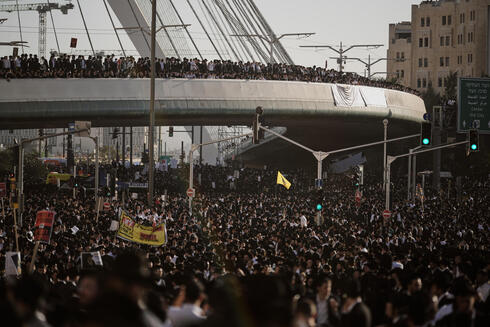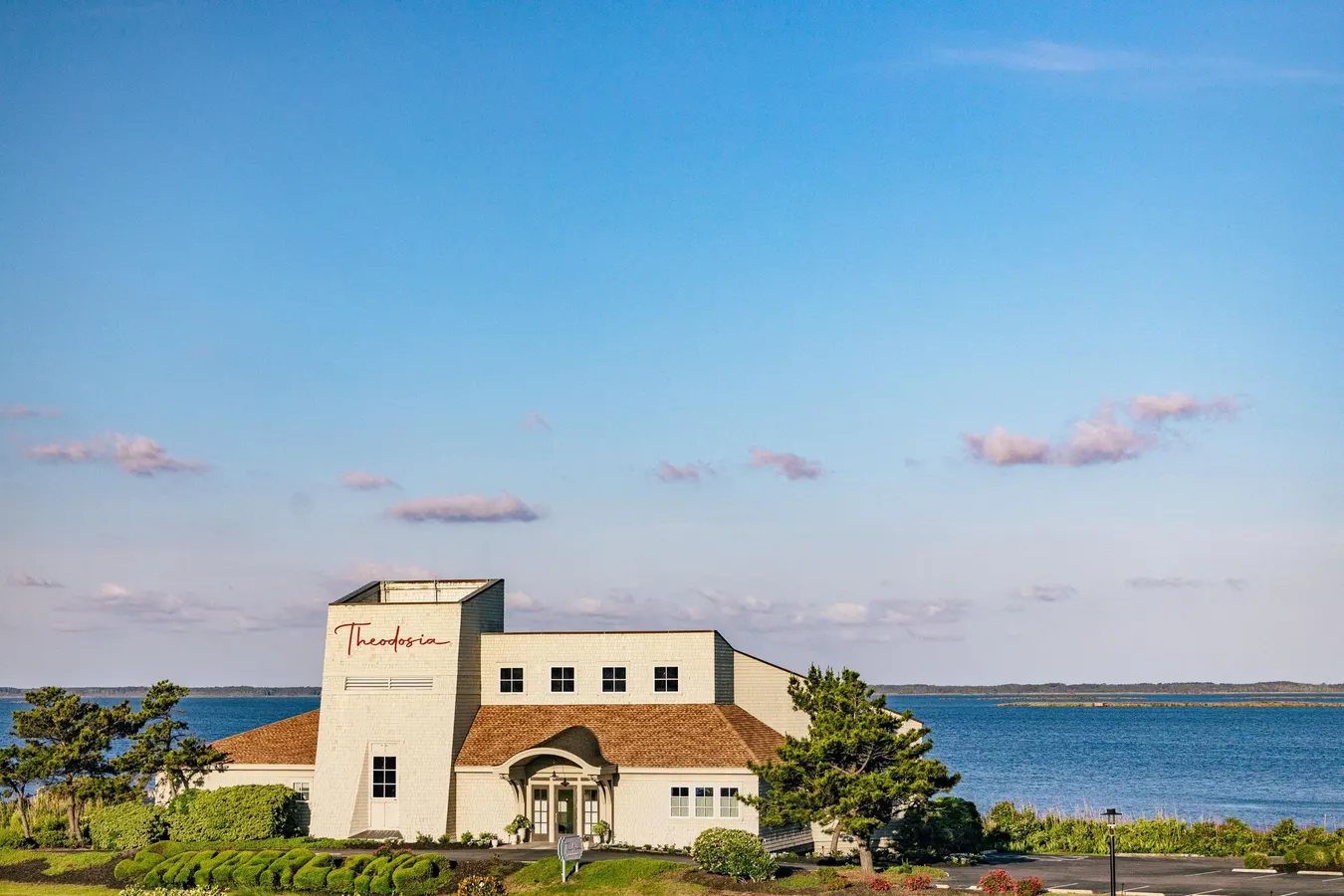Copyright ynetnews

Police said on Thursday afternoon that a teenager was killed after falling from a building during the massive anti-draft rally in Jerusalem. About 200,000 ultra-Orthodox Jews rallied in Jerusalem on Thursday to protest plans to enforce Israel’s military draft law, paralyzing access to the capital and prompting clashes with police and journalists. Shortly after the announcement, the event ended. Highway 1, the main road between Tel Aviv and Jerusalem, was closed to private vehicles in both directions from Latrun to Givat Shaul as tens of thousands of buses and trains carried protesters to what organizers called the “Million Rally.” Police deployed roughly 2,000 officers and Border Police troops to secure the event, warning of “exceptional congestion” on roads leading to the city. At Jerusalem’s Yitzhak Navon train station, heavy overcrowding forced Israel Railways to open gates to allow free movement. Crowds filled platforms and stairways, chanting “We do not believe in the rule of heretics,” a common slogan among extremist ultra-Orthodox factions. The rally was called by senior rabbis to oppose government efforts to extend military conscription to yeshiva students, who have traditionally been exempt while studying Torah full time. Protesters held signs comparing Israel’s government to the Soviet regime under Stalin and denouncing quotas for Haredi enlistment. In the center of the rally, demonstrators carried photos of Ariel Shamai, a student from the Ateret Shlomo yeshiva, who was arrested and held in a military prison for failing to respond to draft orders. Violence broke out when several protesters attacked a journalist from Channel 12 News, throwing bottles and stones. Other demonstrators marched from the Chords Bridge toward central Jerusalem, some following leading Lithuanian rabbi Dov Landau as he entered the city. Marchers shouted “Cursed Zionists” and tore down a sign reading “The People Are the IDF” near the city’s entrance. “I came to Jerusalem to cry out,” said Yehuda Yosef, a resident of Beit Shemesh. “Thousands of yeshiva students are at risk. We must stay in our yeshivas and stand firm. The world exists because of Torah, and we’ll follow our rabbis no matter what the Knesset decides.” During road closures on Highway 16, a police officer was moderately injured after being hit by a bus whose driver did not notice him. The incident was under investigation. A small group of army reservists held a counter-protest near the site, holding a sign that read, “This rally is in memory of our 921 brothers and sisters who fell in the war for the land and Torah.” The Yitzhak Navon station had been scheduled to close at 12:30 p.m. for safety reasons, but National Security Minister Itamar Ben-Gvir and Police Commissioner Dani Levi extended operations until at least 1:30 p.m. due to crowding. The last train from Jerusalem departed at 1:39 p.m., after which the station was shut until the rally ended around 2 p.m. Israel Roads Company said Highway 1 eastbound was closed from the Motza Interchange, with traffic diverted to Highway 16. Highway 443 remained open for both private and public traffic. Police said residents of nearby communities—including Shoresh, Neve Ilan, Mevaseret Zion, Har Adar, Abu Ghosh, Ein Rafa, and Ein Nakuba—could pass checkpoints with identification. Israel Railways said opening gates to allow free passenger movement was standard procedure for mass events, meant to prevent dangerous overcrowding. Similar steps were taken at the Toto Cup soccer final and large concerts earlier in the week. The decision to limit train service drew criticism from ultra-Orthodox politicians. United Torah Judaism lawmaker Yisrael Eichler accused authorities of “cooperating with persecutors of the Haredi public,” and Shas leader Aryeh Deri called the move “outrageous,” saying it would prevent “tens of thousands from arriving and praying.” Israel Railways said it was prepared to add trains but required police security and written authorization to do so. In a letter to the police commissioner, railway management said, “Without clear instructions, the railway cannot increase service to Jerusalem.” Passengers also voiced anger at the closures. “They call it a prayer rally, but it’s a protest against the draft,” said one commuter. “Meanwhile, parents of soldiers can’t attend their kids’ ceremonies. It’s absurd.” Another said, “Closing the trains on a Thursday—the only way to reach Jerusalem—is a disgraceful surrender.” Despite the massive turnout, police deployed only 2,000 officers—the same number assigned to the Jerusalem Pride Parade, which draws about 10,000 participants. Officials warned of “major disruptions and near paralysis” of traffic between Tel Aviv and Jerusalem. Haredi newspapers ran the headline “Today Our Cry Will Be Heard” on Thursday morning. The rally began around 2:30 p.m. and lasted about two hours. Rabbi Dov Landau, a leading Lithuanian rabbinical figure, released a video statement saying, “They rebel against God and His Torah constantly, doing all the disgraceful things in the world. The Arabs could come and wipe us out in an instant, and no army will help. The land wants to vomit us out.”



